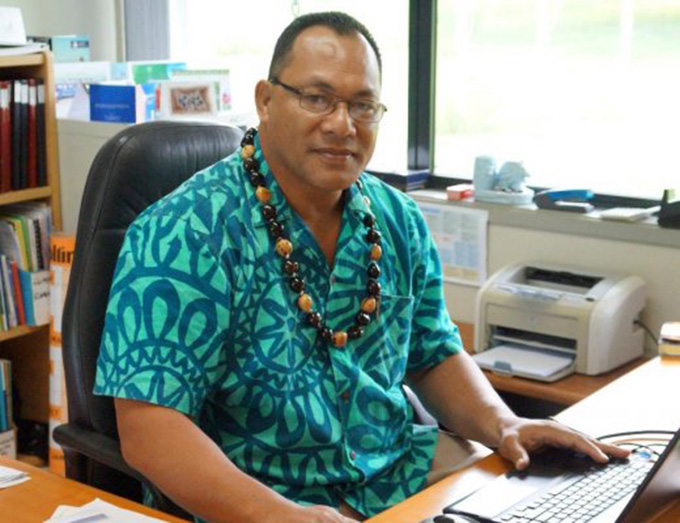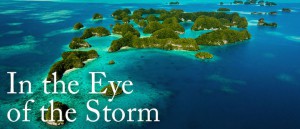
By Thomas Leaycraft of Scoop
Last year’s COP21 Paris agreement on climate change was “a positive outcome’ but did nowhere near enough to address the Pacific’s vulnerabilities, says a regional environmental leader.
Leota Kosi Latu, Director-General of the Secretariat of the Pacific Regional Environment Programme (SPREP), which has 26 member nations, said: “I think it’s a positive outcome for our regions and a positive outcome for our countries … but it’s not finished yet.”
 Latu was giving the closing address to the In the Eye of the Storm Pacific climate change conference yesterday.
Latu was giving the closing address to the In the Eye of the Storm Pacific climate change conference yesterday.
The secretariat had had several “key asks” for the Paris conference, most notably “a strong legally binding agreement,” recognition of small island developing states in the Pacific, an agreement to minimise temperature rises to 1.5 degrees Celsius above pre-industrial levels, and mitigation “architecture”.
Overall, Leota said he was happy with the agreement’s “balance of adaptation and mitigation”. Most of the Secretariat’s key demands were met, though Latu called the document “a compromise agreement”, adding: “One of my disappointments with the Paris agreements is that it didn’t address the issues of oceans.”
Disappointed over treatment
He was also disappointed by the document’s treatment of small island developing nations.
He had hoped to see special provisions for these countries, in acknowledgment that they were the “most vulnerable of the vulnerable” to climate change. The Paris agreement also failed to explicitly provide aid for Pacific countries hit by natural disaster.
The relatively low population of the Pacific should not diminish its importance, Leota added.
The area was “vast in terms of land and ocean” and larger than the whole of Europe. It also faced significant environmental challenges: “We’re talking about a region that is experiencing loss of biodiversity [and] faces challenges in terms of waste and marine pollution.”
Leota said Pacific Island nations “must lead the way,” in the international fight against climate change and should promptly ratify the Paris treaty – Fiji already has.
“We need to encourage countries to sign up,” he said.
SPREC’s new Pacific Climate Change Centre would help carry on the struggle, and the secretariat planned a “Climate Hub Centre of Excellence to help member countries to implement the Paris agreement, Leota added.
NZ ‘must act now’
Opposition Labour MP Su’a William Sio said in an impromptu address at the final forum to end the conference that New Zealand must act now on climate change
“These challenges are going to be there for some time to come,” he said.
Su’a pledged to take action in Parliament.
He hopes the New Zealand government can take greater action to combat climate change, beginning with an evaluation of “economic-envonmental activities”.
Su’a stressed the need to develop a model for an environmentally and economically sustainably society to “get people thinking about the end of the fossil fuel world”.
He also called for a worldwide recognition of “our universal responsibility to one another”.
“The activities of one countries does have an impact on other countries,” said Su’a. The voices of Pacific Island people should be given consideration in Parliament on relevant issues.
Thomas Leaycraft is a Scoop student journalist intern covering the In the Eye of the Storm conference for Scoop, Asia Pacific Report and Evening Report.
Read more about the In the Eye of the Storm Pacific Climate Conference.







































